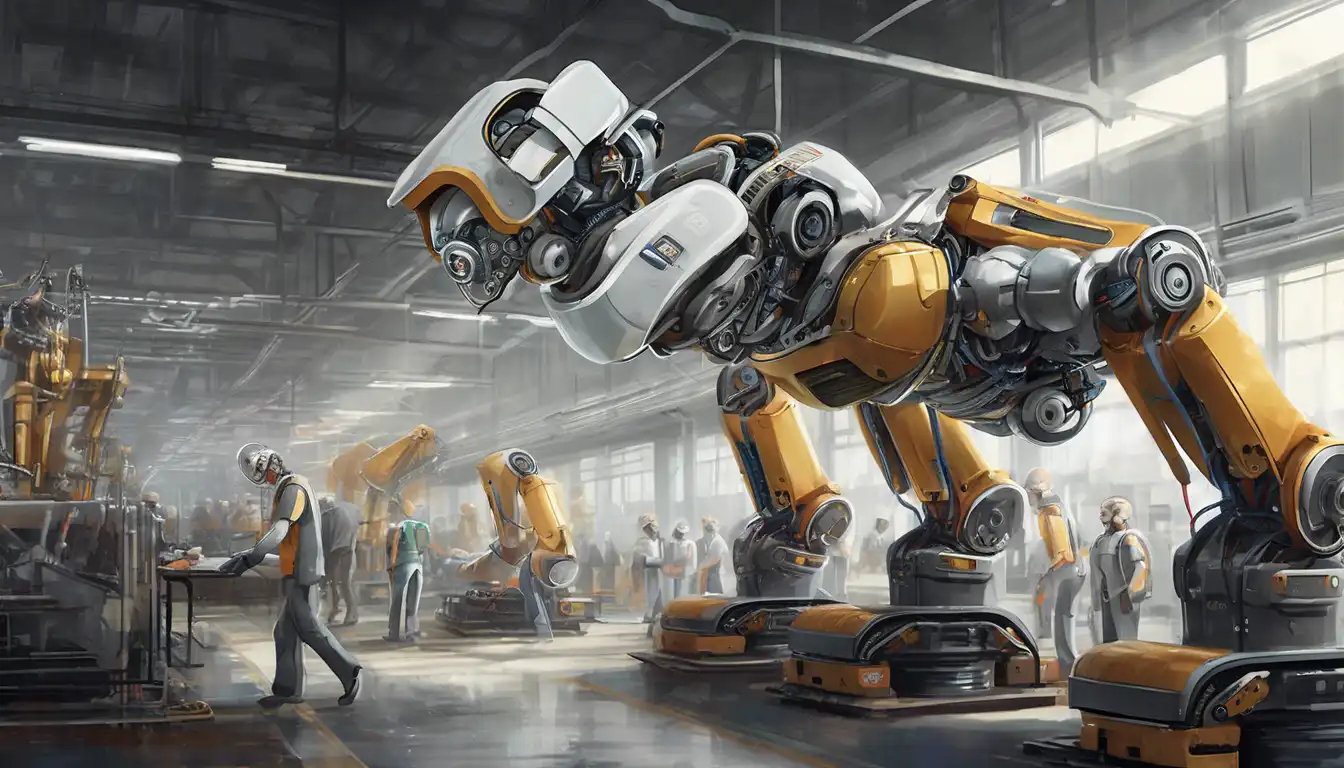The Revolutionary Impact of Robotics on Modern Manufacturing
In the ever-evolving landscape of industrial production, robotics has emerged as a cornerstone of innovation, driving efficiency, precision, and scalability to unprecedented levels. This transformative technology is not just reshaping manufacturing processes but is also redefining the future of work in the sector.
Enhancing Efficiency and Productivity
One of the most significant contributions of robotics in manufacturing is the dramatic increase in efficiency and productivity. Robots, with their ability to operate 24/7 without fatigue, have enabled production lines to achieve higher output rates while maintaining consistent quality. This relentless efficiency is pivotal in meeting the growing demands of global markets.
Precision and Quality Control
Robotics technology brings unparalleled precision to manufacturing tasks, minimizing human error and enhancing product quality. Advanced sensors and machine learning algorithms allow robots to perform intricate operations with accuracy that far surpasses human capabilities, ensuring that every product meets stringent quality standards.
Scalability and Flexibility
The adaptability of robotic systems allows manufacturers to scale operations up or down based on demand without significant downtime or retooling costs. This flexibility is crucial in today's fast-paced market, where the ability to quickly respond to changing consumer preferences can be a competitive advantage.
Safety and Ergonomics
By taking over hazardous or physically demanding tasks, robots have significantly improved workplace safety and ergonomics. This not only reduces the risk of injuries but also allows human workers to focus on more strategic, less physically taxing roles, fostering a more satisfying work environment.
The Future of Robotics in Manufacturing
As robotics technology continues to advance, its integration into manufacturing processes is expected to deepen. Innovations such as collaborative robots (cobots) and AI-driven automation are set to further revolutionize the industry, making manufacturing smarter, safer, and more sustainable.
For those interested in exploring how automation is shaping other industries, check out our article on The Rise of Automation in Agriculture.
In conclusion, the impact of robotics on manufacturing is profound and far-reaching. By embracing this technology, manufacturers can not only enhance their operational efficiency and product quality but also pave the way for a more innovative and sustainable future in industrial production.
